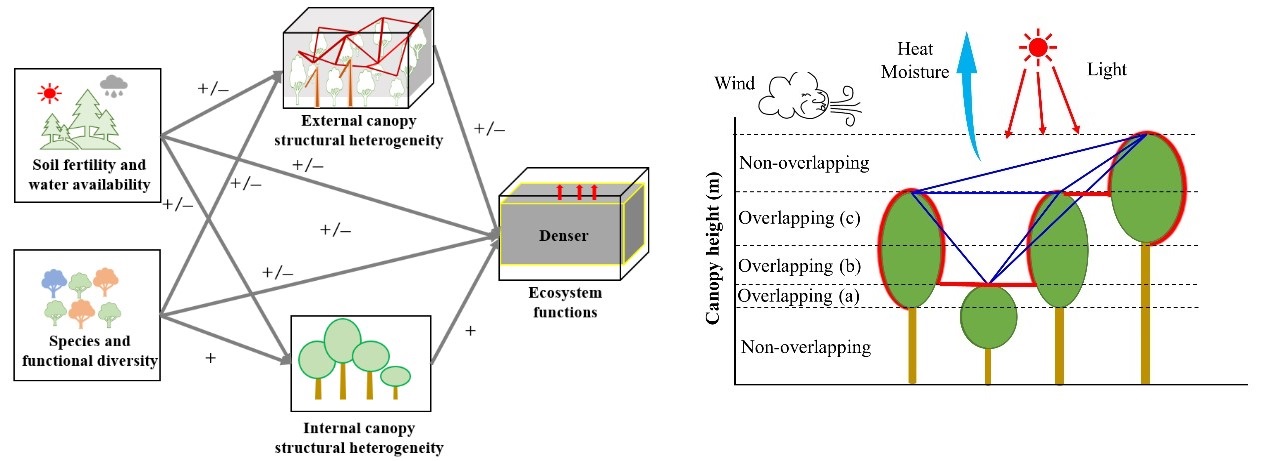Influence of external and internal canopy structural heterogeneity on diversity and productivity relationship in subtropical forest
Published 29 October, 2024
Canopy structural diversity is closely related to species diversity, crown packing efficiency and ecological processes, while influencing ecosystem functions. It can assume a role similar to that of species diversity, and mediates the biodiversity-forest productivity relationship.
Most existing structural diversity indices, however, only consider internal heterogeneity within the canopy. They often neglect the heterogeneity of the external canopy, which can increase the exchange surface area between canopy and external atmosphere, as well as create microclimate in forest understory.
In a study published in the KeAi journal Forest Ecosystems, a team of researchers from China and Canada quantified external structural diversity, and found a much stronger influence than internal canopy structural diversity in the positive species diversity-productivity relationships.
“The 3-D structure of vegetation is the most fascinating thing is forests” shares the study’s lead author, Yaozhan Xu, an associate professor at Wuhan Botanical Garden, Chinese Academy of Science. “Canopy structural diversity captures 3-D variations in vegetation size and structure for a forest canopy, and provides a direct measure of realized niche space.”
The team introduced a new index from geography, canopy surface rugosity (CSR), to capture canopy external heterogeneity, and used crown complementary index (CCI) to quantify canopy internal heterogeneity.
“The results support our hypothesis. Canopy surface rugosity varies among plots showing a large gradient, reflecting structural heterogeneity and recovering from past local disturbance,” says Jia. “We also found that CSR and CCI mediate the positive effect of species diversity and functional diversity on forest productivity.”
Interestingly, CSR plays a more important role in the mediation effect from species diversity, suggesting that the external heterogeneity of canopy structure should be incorporated into structural diversity.

Contact author: Yaozhan Xu (xuyaozhan@wbgcas.cn),Key Laboratory of Aquatic Botany and Watershed Ecology, Wuhan Botanical Garden, Chinese Academy of Sciences, Wuhan 430074, China
Funder: This study was funded by the National Natural Science Foundation of China (31700356) and the Strategic Priority Research Program of the Chinese Academy of Sciences (XDB31000000).
Conflict of interest: The authors declare that they have no known competing financial interests or personal relationships that could have appeared to influence the work reported in this paper.
See the article: Xu, Y., Chen, H. Y., Qiao, X., Zhang, Y., & Jiang, M. (2024). The control of external and internal canopy structural heterogeneity on diversity and productivity relationship in a subtropical forest. Forest Ecosystems, 100246. https://doi.org/10.1016/j.fecs.2024.100246